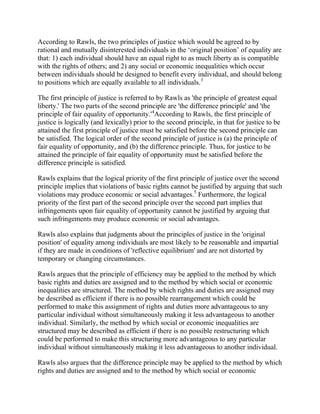Liberty and equality are two fundamental values that have long been championed by political philosophers, activists, and citizens around the world. At first glance, it might seem that these values are incompatible – after all, if individuals have the freedom to pursue their own goals and interests, how can there be equality among them? Conversely, if everyone is granted equal rights and opportunities, how can individuals be free to make their own choices?
However, despite these apparent contradictions, it is possible for liberty and equality to coexist and even support one another. In fact, many argue that liberty and equality are not only compatible, but necessary for a just and fair society.
One way in which liberty and equality can be reconciled is through the concept of positive liberty. This theory, first proposed by philosopher Isaiah Berlin, holds that true liberty is not just the absence of interference, but the presence of the necessary conditions for individuals to live meaningful and fulfilling lives. According to this view, equality is essential for liberty, because without equal access to education, healthcare, and other resources, some individuals will be unable to realize their full potential and exercise their freedom.
Another way in which liberty and equality can be reconciled is through the idea of equal opportunity. This principle holds that individuals should be treated equally under the law and have an equal chance to succeed, regardless of their background or circumstances. While this does not guarantee that everyone will achieve the same level of success, it does ensure that no one is unfairly disadvantaged due to factors beyond their control. In this way, equal opportunity can be seen as a way to balance the competing values of liberty and equality, allowing individuals to pursue their own goals while also ensuring that everyone has a fair shot at success.
Of course, it is important to recognize that achieving both liberty and equality can be challenging, and there are often trade-offs involved. For example, in order to ensure equal access to education, a government might need to regulate private schools or allocate resources in a way that some might consider interference with individual freedom. Similarly, in order to protect individual liberty, a government might need to limit the ability of certain groups to achieve equality, such as through affirmative action policies.
Despite these challenges, it is clear that liberty and equality are not mutually exclusive values, and that a society can strive to achieve both. By recognizing the importance of both liberty and equality, and finding ways to balance and reconcile these values, we can create a more just and fair society for all.





